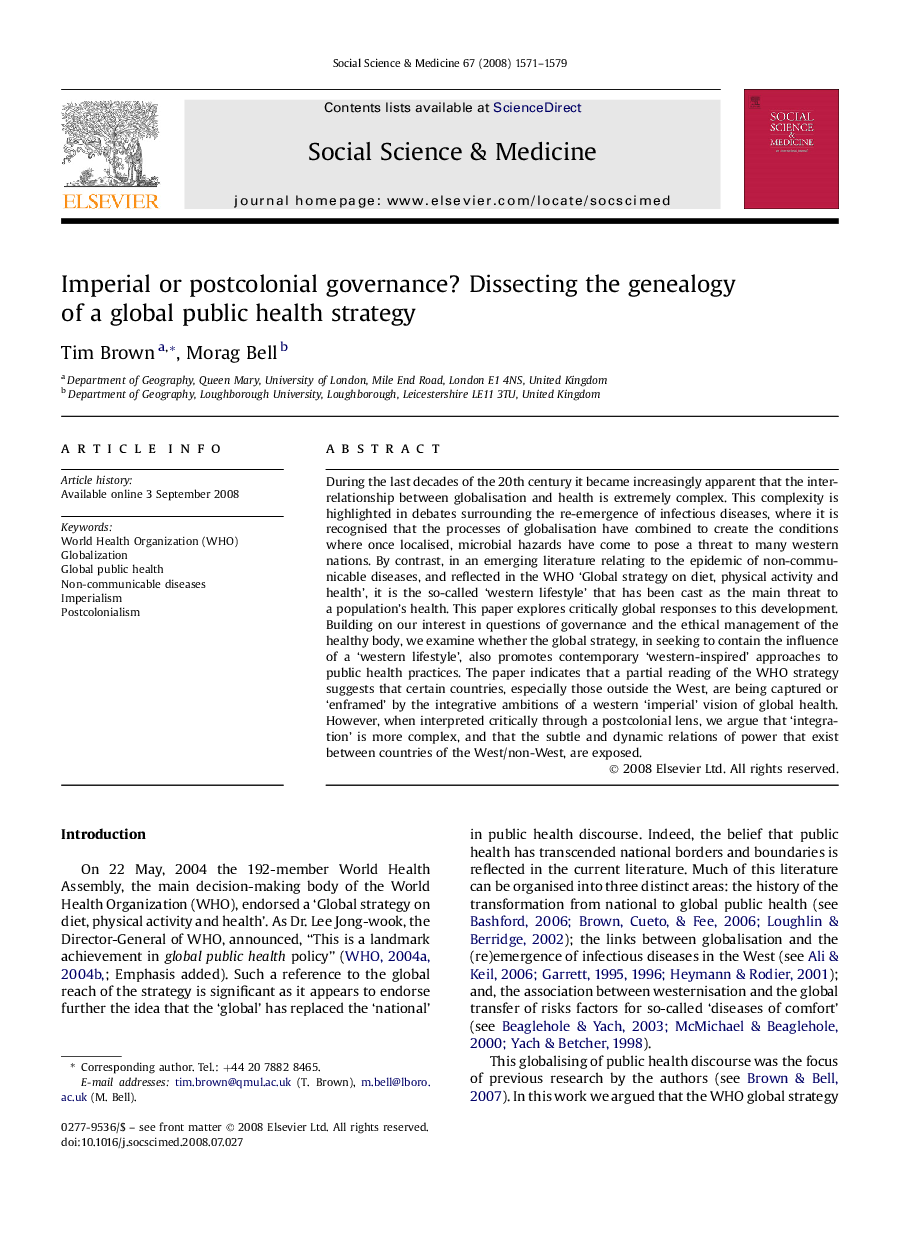| Article ID | Journal | Published Year | Pages | File Type |
|---|---|---|---|---|
| 954140 | Social Science & Medicine | 2008 | 9 Pages |
During the last decades of the 20th century it became increasingly apparent that the inter-relationship between globalisation and health is extremely complex. This complexity is highlighted in debates surrounding the re-emergence of infectious diseases, where it is recognised that the processes of globalisation have combined to create the conditions where once localised, microbial hazards have come to pose a threat to many western nations. By contrast, in an emerging literature relating to the epidemic of non-communicable diseases, and reflected in the WHO ‘Global strategy on diet, physical activity and health’, it is the so-called ‘western lifestyle’ that has been cast as the main threat to a population's health. This paper explores critically global responses to this development. Building on our interest in questions of governance and the ethical management of the healthy body, we examine whether the global strategy, in seeking to contain the influence of a ‘western lifestyle’, also promotes contemporary ‘western-inspired’ approaches to public health practices. The paper indicates that a partial reading of the WHO strategy suggests that certain countries, especially those outside the West, are being captured or ‘enframed’ by the integrative ambitions of a western ‘imperial’ vision of global health. However, when interpreted critically through a postcolonial lens, we argue that ‘integration’ is more complex, and that the subtle and dynamic relations of power that exist between countries of the West/non-West, are exposed.
